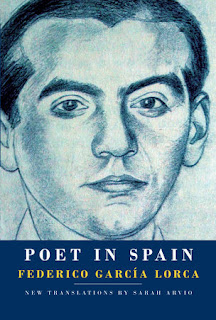Let me some up the best new play I've seen on broadway this year by saying this: I'll be shocked if Mark Rylance doesn't win a Tony Award for his portrayal of Spain's King Philippe V. For nearly the entire play, he is onstage, often deranged but always commanding attention. For that matter, the entire cast was great.
The play is Shakespearean in its scope and ambition. The fact that it's a historical play only makes it seem more timeless, though Farinelli and the King premiered in London in 2015. The music that accompanies the action lets the audience feel the way music can serve as a healing power even as we watch the king stammer in and out of sanity, with his bouts of reasonableness usually buoyed by the presence of the opera star Farinelli's music.
Playwright Claire van Kampen has done a magnificent job with a classic subject: an unhinged ruler presiding during perilous times. Many people see parallels between her King Philippe and the current U.S. President, but I see our current administration and his entire party as more corrupt and disingenuous than crazy (though there's certainly an element of that at play too). At any rate, the play is not so much a satire about our current times as a timeless meditation upon music's solace for the soul.
Saturday, March 17, 2018
Saturday, March 10, 2018
Frederico Garcia Lorca Comes to Town
I was very pleased that Alfred A. Kopf, The New School and the Poetry Society of America teamed up to host a reading of new translations by Sarah Arvio of the great Spanish poet. Some of the participants exclusively read the English translations, while others read Lorca's poems in both Spanish and English.
Readers included Cyrus Cassells, Rachel Eliza Griffiths, Nathalie Handal, Roberto Montes, Rowan Ricardo Phillips, Philip Schultz and Sarah Arvio herself.
I'm always taken aback when I realize how young Lorca was when he perished, and how much great work he created during what was essentially his youth. It was also interesting to hear stories about how his memory was not celebrated for a long time in Spain, though he is widely celebrated today. Minus the part about being presumably tortured and killed for his homosexuality and political stances, the arc of his billowing posthumous fame I think is kind of every writer's dream. Like I said, minus the Civil War discourtesy of his presumed assassination.
Readers included Cyrus Cassells, Rachel Eliza Griffiths, Nathalie Handal, Roberto Montes, Rowan Ricardo Phillips, Philip Schultz and Sarah Arvio herself.
I'm always taken aback when I realize how young Lorca was when he perished, and how much great work he created during what was essentially his youth. It was also interesting to hear stories about how his memory was not celebrated for a long time in Spain, though he is widely celebrated today. Minus the part about being presumably tortured and killed for his homosexuality and political stances, the arc of his billowing posthumous fame I think is kind of every writer's dream. Like I said, minus the Civil War discourtesy of his presumed assassination.
Subscribe to:
Posts (Atom)
